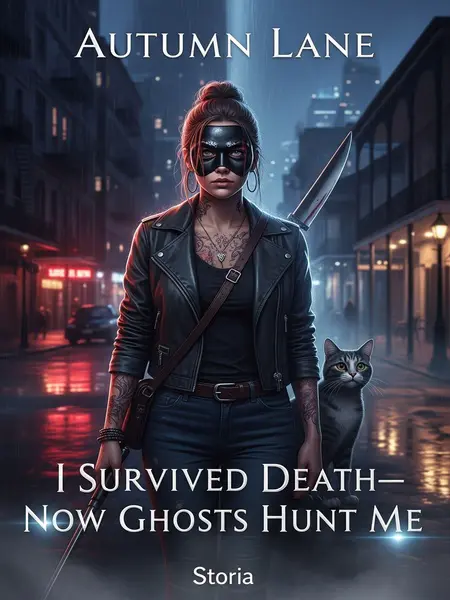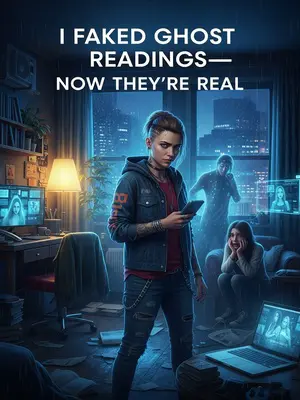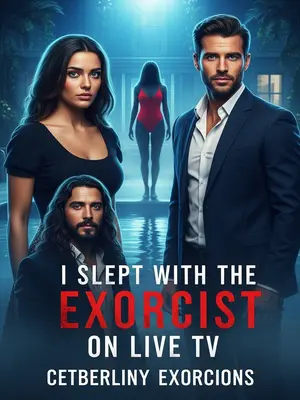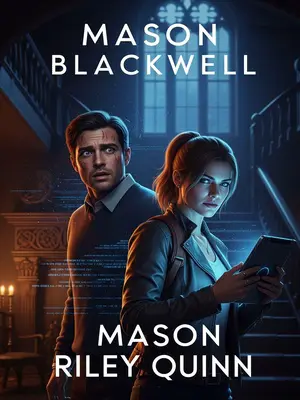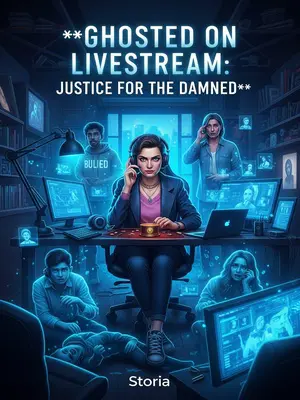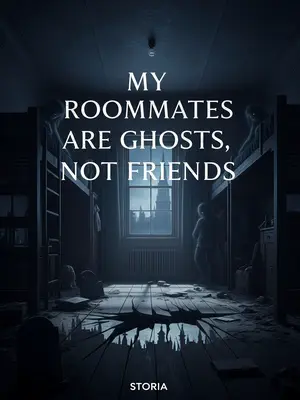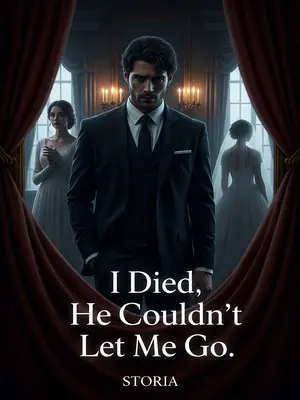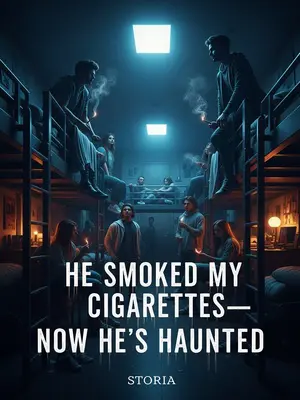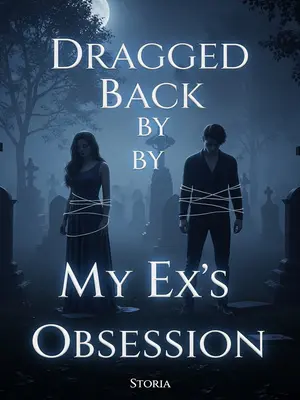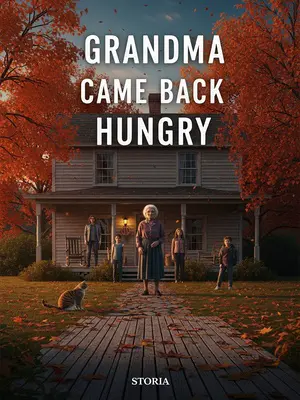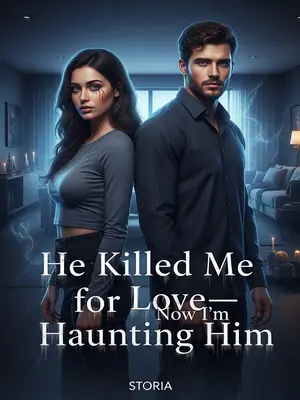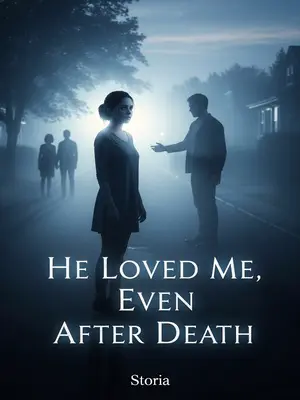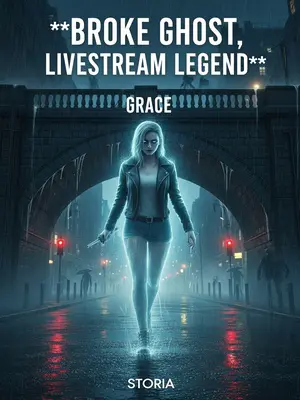Chapter 1: Lucky Stars and Ghost Shadows
When I was a kid, a preacher once told me I was born lucky—said I was born under a lucky star, meant for greatness.
His words stuck with me, echoing in the back of my mind for years—even when I pretended not to care. There was something about the way he said it—like he could see right through me, past my scraped knees and tangled hair—right down to my bones. That memory always left a strange, lingering warmth, like sunlight streaming through a church window on a lazy Sunday afternoon.
But he warned my mom, told her luck like that draws envy. If you’re not careful, it can turn on you, he said.
I remember the hush in the living room, the preacher’s voice low and serious. My mom’s lips pressed into a thin line, her eyes flashing with that stubborn streak she wore like a badge she never took off. She didn’t believe in omens, but I could feel the air get heavy, like a thunderstorm was about to break.
My mom figured he was just a scam artist and ran him off with a broom.
She could be fierce when she wanted to be, chasing him down the porch steps in her house slippers, cussing under her breath the way she did when the TV broke. Our neighbor Mrs. Jenkins peeked through her blinds, probably thinking the preacher was trying to sell us snake oil or some pyramid scheme. I remember laughing, but deep down, I always wondered if there was more to it.
She had no idea he might’ve been right. For a second, I almost wanted to believe it too.
Looking back, I can’t blame her. But if I’d known what was coming, maybe I would’ve listened a little harder. Maybe I’d have clung to that warning like a lifeline.
I almost died because of that so-called destiny.
It’s funny how life circles back. Sometimes I wonder if fate’s just a story we tell ourselves, or if it’s something real. Something that chases you down dark alleys when you least expect it.
When I left work, it was already past midnight. My Uber hadn’t shown up yet. I stood outside the office building, my blouse stuck to my skin with sweat, phone clenched in my hand. The automatic glass doors kept sliding open and shut behind me. The lights were so dim, I felt like someone was watching me from the shadows.
The city felt different at that hour—emptier, the hum of traffic faded to a distant echo. It was just me and the dark. I shivered, not sure if it was the chill in the air or the feeling that something was just out of sight, holding its breath.
Just as I was about to freak out, a black sedan with a little golden hood ornament screeched to a halt. Right in front of me.
The headlights caught me in their glare, and for a split second, I thought about running. But the car’s engine purred, and I spotted the familiar Uber decal on the windshield. The golden ornament glinted—a pause—like a tiny promise.
I hesitated, walked around to the back, and snapped a photo of the license plate—just being careful, like Mom always said—then double-checked it against my app before I got in.
Paranoia or not, Mom always said it was better to be safe than sorry. My heart thudded as I checked the numbers—twice. Only then did I open the door, sliding into the cool, leather-scented interior.
The AC inside was blasting. I squeezed the purple lucky charm hanging from my purse. Felt warmth rush into my palm. Let out a shaky breath.
Somehow, that little pouch was the only thing keeping me together. Or so I told myself. The fabric was soft and worn, the embroidery faded from years of anxious rubbing. I whispered a silent thanks to Marlene, hoping her faith was enough for both of us.
Just thinking about what happened at work made my skin crawl. Still does.
My mind replayed the scene—the flicker of candlelight on everyone’s faces, the hush that settled over the room. Everything felt wrong. The air was charged, electric, like we were trespassing on sacred ground.
Right before clocking out, a last-minute design order came in. Except for Marlene—who’d already left to pick up her kids—everyone in the design department had to stay and work late.
We all groaned, but nobody dared complain too loud. Overtime was the unofficial language of the agency. Marlene’s desk was already cleared, her coffee mug washed and upside down—a reminder that some people had lives outside the office.
Marcus, always the class clown, dug out a box of board games while we waited for the client’s reply. We turned off the lights, lit some candles, and started playing.
It was the kind of thing you’d expect from a bunch of overworked creatives—trying to turn a bad night into something bearable. Candlelight flickered, throwing weird shadows on the walls, and someone joked it looked like a séance. I laughed, but my skin prickled.
Three rounds in a row, I drew the villager card. Bored, I started counting heads. It was a dumb distraction. But I couldn’t help myself.
But something was off. Way off. No matter how I counted, there were always seven people in the office.
That couldn’t be right. My stomach twisted. There should’ve only been six—Marlene was gone. I counted again, slower, willing the numbers to make sense. Maybe I was just tired. Maybe I was seeing things.
I froze. From where I sat, everyone had their heads down. I couldn’t see their faces—just count their heads.
The silence grew thick, broken only by the hiss of the AC and the soft scratch of pencils on notepads. My heart hammered. I wanted to call out, but my throat felt tight—like I was choking on cotton.
One, two, three, four, five, six, seven.
One, two, three, four, five, six, seven.
My hands trembled. I squeezed my lucky charm so hard it hurt. The candles flickered, and the shadows seemed to pulse, growing longer, darker. I felt like I was trapped in a nightmare, unable to wake up.
Just as I was about to lose it, the charm on my purse flashed, and the security guard on patrol turned the lights on.
The spell broke. Harsh fluorescent light flooded the room, chasing the shadows away. I gasped, blinking. My coworkers looked up, confused. Someone asked if I was okay. I wiped the sweat from my brow, stammered something about being tired, and they told me to head home early. I didn’t argue.
Lost in thought. Then a sudden jolt brought me back.
The car lurched to a stop, snapping me out of my daze. My phone buzzed, but my hands were shaking too much to check it. I glanced out the window, trying to ground myself in the here and now.
The car stopped at the mouth of the alley near my apartment.
The street was deserted, shadows pooling in the corners. The only sound was the engine’s low rumble. And my own heartbeat, thudding in my ears.
Out front, there’s a narrow, pitch-black alley that looks like the entrance to a different world in a superhero comic.
It always reminded me of the opening to some old noir movie. The kind where the detective knows he’s about to get in trouble, but walks in anyway. Tonight, it felt even darker, like the world had shrunk to just this one sliver of asphalt and fear.
Usually, two old streetlights flicker here. But tonight, for whatever reason, they kept sputtering out.
The lights buzzed, then blinked off entirely, plunging the alley into total darkness that swallowed the curb and crept up the sides of the buildings. I hugged my purse tighter, wishing for a flashlight—or better yet, a friend. Or at least someone to walk with.
I swallowed hard. Stepped out of the car.
The night air hit me like a slap, cold enough to sting. My shoes clicked on the pavement, echoing too loud in the hush. Way too loud.
I forced myself to stand tall, pretending I wasn’t scared out of my mind.
Normally, I wouldn’t be scared. But after everything that’d happened lately—and after tonight at work—my nerves were shot.
My hands shook. I told myself it was just exhaustion, but I knew better. The city felt off. Like it was holding its breath, waiting for something to go wrong.
The Uber driver was a big bald guy with tattoos—a dragon on his left arm, a tiger on his right. Seeing my fear, he grinned, shining his phone’s flashlight, “Ma’am, cars can’t fit down there. Want me to walk you in with the light?”
His Southern accent was warm. The kind that made you think of backyard BBQs and sweet tea. The tattoos, which might have been intimidating in daylight, seemed oddly comforting now. Like he could handle anything that crawled out of the dark.
I nodded fast. The tattooed guy who’d looked so tough suddenly seemed like a guardian angel.
He shot me a wink, then stepped ahead, holding his phone high. I kept close behind, matching my steps to his, feeling a little safer with every stride.
He led the way with his phone, and I stuck close behind.
The beam of light cut through the darkness, illuminating cracks in the pavement and random bits of trash. I kept glancing over my shoulder, half-expecting something to slither out of the shadows. The driver didn’t seem fazed. He just whistled a low tune that sounded like an old blues riff.
The moment I stepped into the alley, it felt like someone was watching me—cold eyes on my back.
It was like walking into a freezer. The hairs on my arms stood up, and my breath came out in white puffs. I tried to convince myself it was just nerves, but the feeling was too sharp, too real.
I looked back in panic. Nothing. Just shadows.
The alley was empty, except for a few trash bins and a stray cat that darted behind a dumpster. My mind raced, every horror movie I’d ever watched playing on repeat. Every single one.
I gripped my lucky charm tighter. Inched closer to him.
The charm pulsed with warmth, helping me breathe. I pressed it to my chest, whispering a silent prayer.
